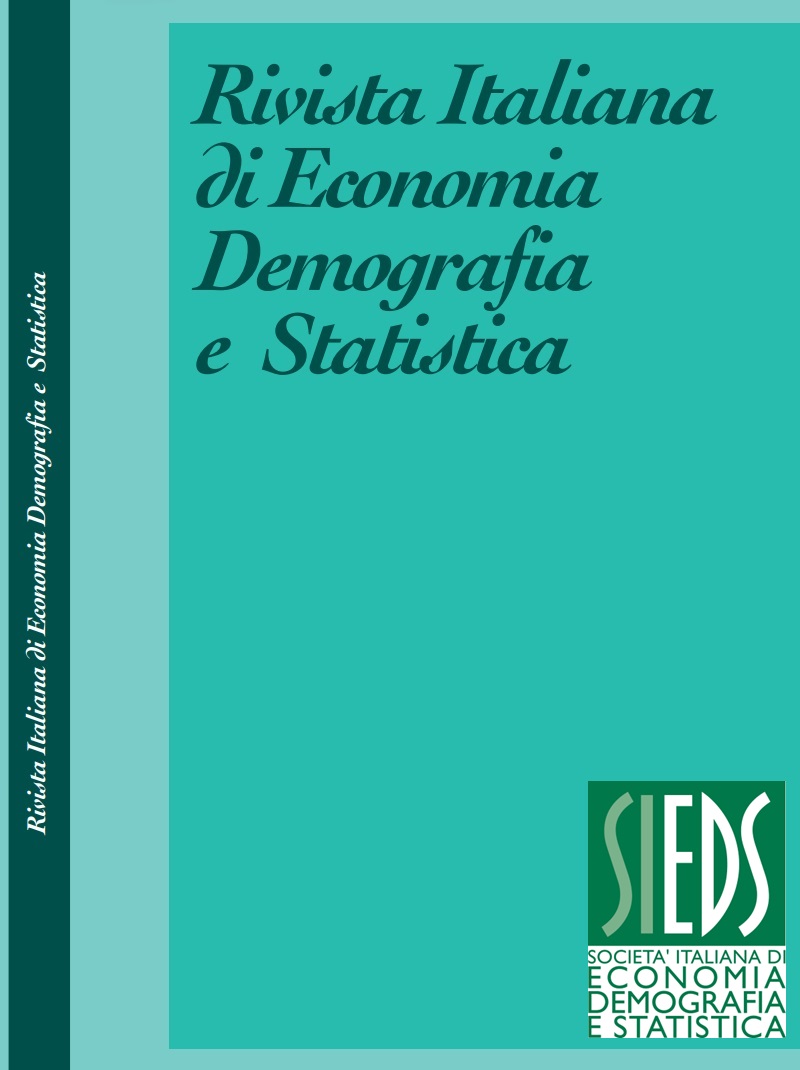Determinants of students’ proficiency: school features and personal characteristics vs SES in Kosovo
DOI:
https://doi.org/10.71014/sieds.v79i2.373Keywords:
Education, Socioeconomic determinants, School features, Personal characteristics, Gender differences, Micro analysesAbstract
This study tests whether the school context and students’ personal characteristics improve male and female students’ proficiency irrespective of the effects of families’ socioeconomic inequalities. The object of the investigation is a country presenting relatively poor educational results: Kosovo.
The study used the PISA 2022 dataset and focused on the math scores of female and male Kosovo students. The statistical analyses employed balanced repeated replication regression models by students’ gender.
The results show that SES is a significant but not unmitigated determinant of the students’ proficiency. School features affect the students’ scores, while students’ personal features have an even larger impact on them. Girls’ math scores are equivalent to boys’ – which is uncommon – but are differently affected by the proficiency determinants.
These findings suggest that school features and personal traits change students’ proficiency even when pupils, on average, come from a context negatively affecting their capabilities and present relatively low proficiency. Moreover, averagely lower socioeconomic conditions and the probable persistence of traditional gender roles are not synonymous with the gender gap in proficiency. Still, girls and boys are different in how they respond to proficiency factors, and therefore gender-specific policies are advisable to improve their proficiency.
References
AMMERMUELLER A. 2004. PISA: What makes the difference? Explaining the Gap in PISA Test Scores Between Finland and Germany. Mannheim: Zentrum für Europäische Wirtschaftsforschung, DOI: https://doi.org/10.2139/ssrn.555954
ANGHEL B., RODRÍGUEZ-PLANAS N., SANZ‐DE‐GALDEANO A. 2020. Gender Equality and the Math Gender Gap. SSRN Paper. Rochester, N.Y.: SSRN. DOI: https://doi.org/10.2139/ssrn.3716164
COOPER J.J., MIRALAY F. 2022. The Examination of Poverty Effect on Student Performance in Low-Income Countries, Near East University Online Journal of Education, Vol. 5, No. 2, pp. 37–46.
HATTIE J. 2009. Visible Learning: A Synthesis of over 800 Meta-Analyses relating to Achievement. London: Routledge.
LEE J., STANKOV L. 2018. Non-Cognitive Predictors of Academic Achievement, Learning and Individual Differences, Vol. 65, pp. 50–64. DOI: https://doi.org/10.1016/j.lindif.2018.05.009
LUTFIU B., LUTFIU HOXHA L. 2024. Socioeconomic Status of Teachers and Its Impact on Teaching Quality, European Journal of Education and Pedagogy, Vol. 5, No. 2, pp. 52–58. DOI: https://doi.org/10.24018/ejedu.2024.5.2.790
OECD. 2023. PISA 2022 Database. Paris: OECD.
https://www.oecd.org/en/data/datasets/pisa-2022-database.html
OKPALA C.O., OKPALA A.O., SMITH F.E. 2001. Parental Involvement, Instructional Expenditures, Family Socioeconomic Attributes, and Student Achievement, The Journal of Educational Research, Vol. 95, No. 2, pp. 110–115. DOI: https://doi.org/10.1080/00220670109596579
POKROPEK A., BORGONOVI F., JAKUBOWSKI M. 2015. Socio-Economic Disparities in Academic Achievement, Learning and Individual Differences, Vol. 42, pp. 10–18. DOI: https://doi.org/10.1016/j.lindif.2015.07.011
POST D., PONG S-L. 2009. Student Labour and Academic Proficiency in International Perspective, Internat. Labour Review, Vol. 148, No. 1-2, pp. 93-122. DOI: https://doi.org/10.1111/j.1564-913X.2009.00050.x
SCHLEICHER A. 2023. PISA 2022 Insights and Interpretations. Paris: OECD.
SHUKAKIDZE B. 2013. Comparative Study: Impact of Family, School, and Students Factors on Students Achievements in Reading in Developed (Estonia) and Developing (Azerbaijan) Countries, International Education Studies, Vol. 6, No. 7, pp. 131–143. DOI: https://doi.org/10.5539/ies.v6n7p131
WOLDEMICHAEL B., SEMELA T., TULU A. 2023. Mathematics Self-Efficacy, Self-Concept and Anxiety in Relation to Mathematics Achievement: The Case of Kafa Zone School Adolescents, Ethiopia, F1000Research, Vol. 12, 1494. DOI: https://doi.org/10.12688/f1000research.142779.1
WORLD BANK, 2023. Average Learning Outcomes [dataset].
Downloads
Published
Issue
Section
License
Copyright (c) 2025 Luigi Maria Solivetti

This work is licensed under a Creative Commons Attribution 4.0 International License.



